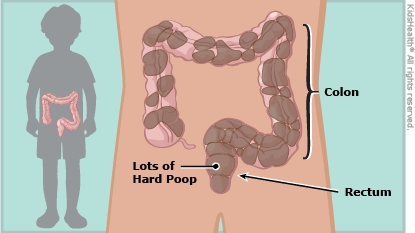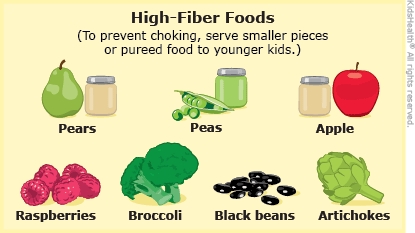Constipation means having fewer bowel movements (poops) than usual, or having dry, hard, or difficult-to-pass poops. "Chronic" constipation means your child has been constipated for a long time, and the poop filled up and stretched out parts of the intestines. This makes it hard for the intestines to work normally. Treatment begins with "cleaning out" the intestines and starting medicines to help poop pass easily.



Your child:



What is disimpaction? Disimpaction is when poop is cleaned out of the intestines. The clean-out happens by giving your child one or more of the following:
How did my child's constipation happen? Kids can get constipation from not having enough fiber in their diet. Sometimes kids get constipated from holding in poop during toilet training or when at school. Even stress or a big change at home can lead to constipation.